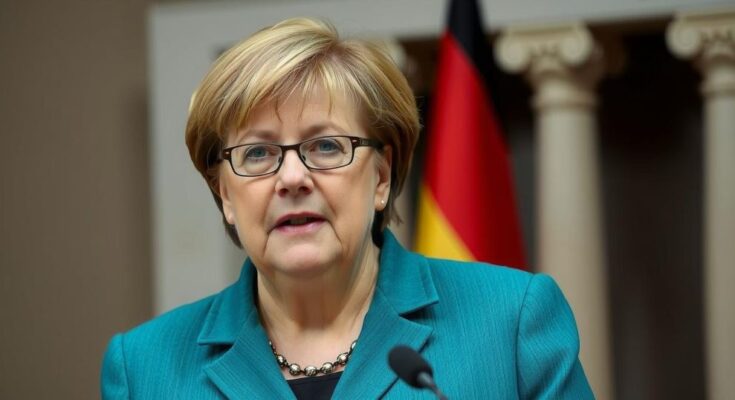German President Frank-Walter Steinmeier dissolved parliament and called for early elections on February 23 following the government collapse of Chancellor Olaf Scholz. Steinmeier emphasized the necessity for political stability and a respectful campaign amid rising concerns over security and immigration after recent events. Scholz will serve as caretaker chancellor until a new government is formed, which may take several months.
On Friday, German President Frank-Walter Steinmeier announced the dissolution of parliament and confirmed that early general elections will take place on February 23. This decision follows the collapse of Chancellor Olaf Scholz’s government due to internal discord over the revival of Europe’s largest economy. Compounding these issues, a recent car-ramming incident at a Christmas market has intensified the nation’s discussions regarding security and immigration policies.
During his announcement, President Steinmeier highlighted the urgent need for political stability in Germany. He urged that the upcoming election campaign should be conducted with respect and integrity, underscoring the importance of fair processes while warning against foreign influence, particularly on social media platforms. “Hatred and violence must have no place in this election campaign, nor denigration or intimidation… all this is poison for democracy,” he stated.
Moreover, Steinmeier reminded political leaders and constituents of the myriad challenges awaiting the new government, including economic instability and ongoing conflicts in the Middle East and Ukraine, alongside pressing issues of immigration and climate change. Until a new administration is established, Chancellor Scholz will continue to serve in a caretaker role, a process that may extend over the forthcoming months.
The decision to dissolve parliament comes in the wake of Chancellor Olaf Scholz’s government collapse due to factional disputes within the coalition regarding economic strategies. The political climate in Germany is particularly fraught, not only because of internal disputes but also due to heightened sensitivity surrounding security measures following recent violent incidents. The impending elections represent a pivotal moment for the nation, as voters will consider critical issues like economic recovery, security, and immigration amidst a backdrop of geopolitical tensions.
In conclusion, Germany is on the cusp of significant political change as President Steinmeier initiates early elections scheduled for February 23, following the dissolution of Chancellor Scholz’s government. Steinmeier calls for a campaign rooted in civility and transparency, stressing the need for political stability and addressing the complex challenges the next government will face. As the nation prepares for this consequential election, it is imperative that the political discourse remains respectful and focused on the pressing issues at hand.
Original Source: www.kyivpost.com




